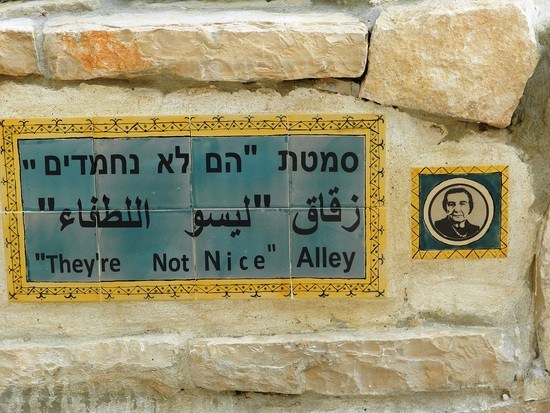Israel

Wikimedia CommonsThe Israeli Black Panthers social movement originated in the Musrara neighborhood in the early 1970s. Then Israeli Prime Minister Golda Meir said, “They are not nice people.” This alley is still named after that quote.
In Israel, the Black Panther torch was taken up by Mizrahi Jews — Jews descended from the Middle East, North Africa, and Central Asia — along with other minority groups within the Jewish community.
The discontentment in these groups began as soon as Israel was first established.
Mizrahi Jews had left their (predominantly Muslim) home countries to seek refuge and acceptance in the new state. But when they arrived, they faced continued inequality – being relegated to inferior neighborhoods and worse-paying jobs than Jews of European decent.
So, in 1971, a group of Mizrahi and other Jews formed the Israeli Black Panthers. The party rapidly gained popularity and on May 18, 1971, they hosted a militant protest of 5,000 to 7,000 demonstrators in Jerusalem’s Zion Square.
“The Night of the Panthers” was meant as a statement against income inequality. It succeeded in getting the prime minster’s attention, and social service budgets were enlarged shortly afterward (if only for a brief moment).
Other international support groups
The Black Panthers also received symbolic and financial support from groups in Germany, Sweden, France, South Africa, Japan, Canada, Mozambique, Zimbabwe, and Uruguay.
And as new movements for racial equality gain momentum today, these international ties remain pertinent.
As Malcolm X once said racial injustice is “no longer a Negro problem or an American problem but a human problem.”
Next, read about Malcolm X’s iconic friendship with Muhammad Ali. Then, check out these six civil rights activists you probably don’t know about — but should.





